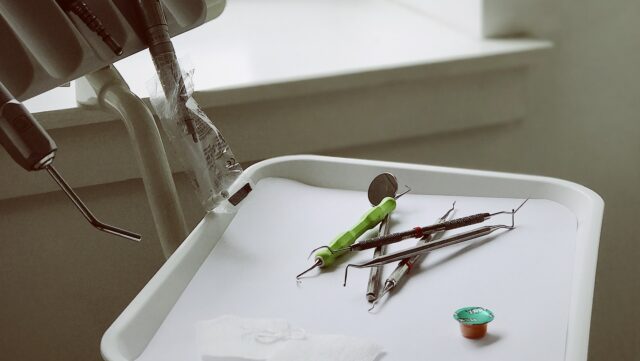Myth 1: Dental nursing is low paid
Reality: Dental nurse pay can vary significantly considering the geographic location, level of skills and the work setting. For example, the pay for a recently qualified dental nurse will be different than that of a specialised dental nurse. According to National careers advice the salary can range from £21,730 to £32,934. Dental nurses can also take additional responsibilities in their workplace like being a lead nurse which would increase their pay accordingly. Moreover, some nurses, for example those that work in hospitals, may be on a higher salary reflecting the different environment and the job responsibilities.
Myth 2: Dental nursing is a static job
Reality: In a week, a dental nurse can get to work with so many different types of clinicians: dentist, specialist, hygienist, therapists or orthodontists. The scope of practice is different and therefore you get to do different things. Beside assisting, dental nurses carry out decontamination and disinfection procedures, welcome patients, complete regular audits, give oral hygiene advice to patients and even support trainee dental nurses. Their role is extremely dynamic, and every day is quite different.
Myth 3: Dental nursing is just assisting
Reality: From what you have read above, dental nursing is a skilled profession where nurses have a great deal of responsibility around the practice and the care of the patient. They’re role expands from assisting, to paperwork, to auditing, maintenance of stock, communication between the dental surgery and reception or the dental lab.
Myth 4: Dental nursing is monotonous
Reality: Many patients come through the doors of the dental practice. Some days they will have to use simple language to communicate with young patients whereas on other days they may have to adjust their skills to support patients with disabilities. Although the procedures are the same each patient is different and for this reason every dental appointment will have an element of novelty. As dentistry develops and new technologies arise the job responsibilities of the dental nurse also has to adapt making their work dynamic forever changing.
Myth 5: Dental nurses don’t need communication skills
Reality: Without the communication skills of the dental nurse the entire care of the patient would be impacted. Through good communication skills they ensure the smooth running of the day. During dental treatment it is the communication skills with the patient that will increase the efficiency of the procedure and enhance the comfort of the patient.
Myth 6: Dental nurses only work in dental clinics
Reality: Whilst the larger majority of them work in dental clinics, others work in other settings like hospitals, community settings, mobile units or even prisons.
Myth 7: Dental nurses don’t play a significant role
Reality: without dental nurses’ dental practices wouldn’t be able to run. They are at the heart of delivering best care to patients. Their contribution increases efficiency in dental procedures which takes the pressure off clinicians allowing them to focus on the treatment. They also keep the surgery an organised, clean and safe environment. They carry out daily checks that maintain dental units and equipment. During treatments they encourage and support the patient making them feel comfortable and looked after. Dental nurses are indispensable members of the dental team.
Myth 8: Dental nurses don’t require education or training
Reality: Dental nurses go through extensive training involving not only dental knowledge but also practical skills which are built up on the job and only on successful completion of these are they able to qualify. Their training takes many months and involves weekly written assignments, workplace assessments and exams to give them the knowledge and skills they need to assist in the provision of safe and high standards of care. Even after qualifying they continue to learn for the rest of their lives through regular training to maintain their knowledge and skills.
Myth 9: Dental nursing has no progression path.
Reality: After qualifying, dental nurses have quite a few options for their career development. They can specialise in many areas of dentistry, including becoming lead nurses, or by undertaking further training to become oral health educators or expand their scope of practice to taking impressions or even place fluoride varnish. And it doesn’t stop here! Dental nurses can progress to treatment coordinators, practice managers, or become dental nursing assessors.
Myth 10: Dental nursing is only for women
Reality: Although many years ago the vast majority of dental nurses that you would see would be women, in recent times we have seen an increase in the number of male dental nurses. These are exciting times as the the dental team is becoming more diverse and allows males to follow their dreams and pursue a career in dentistry.

